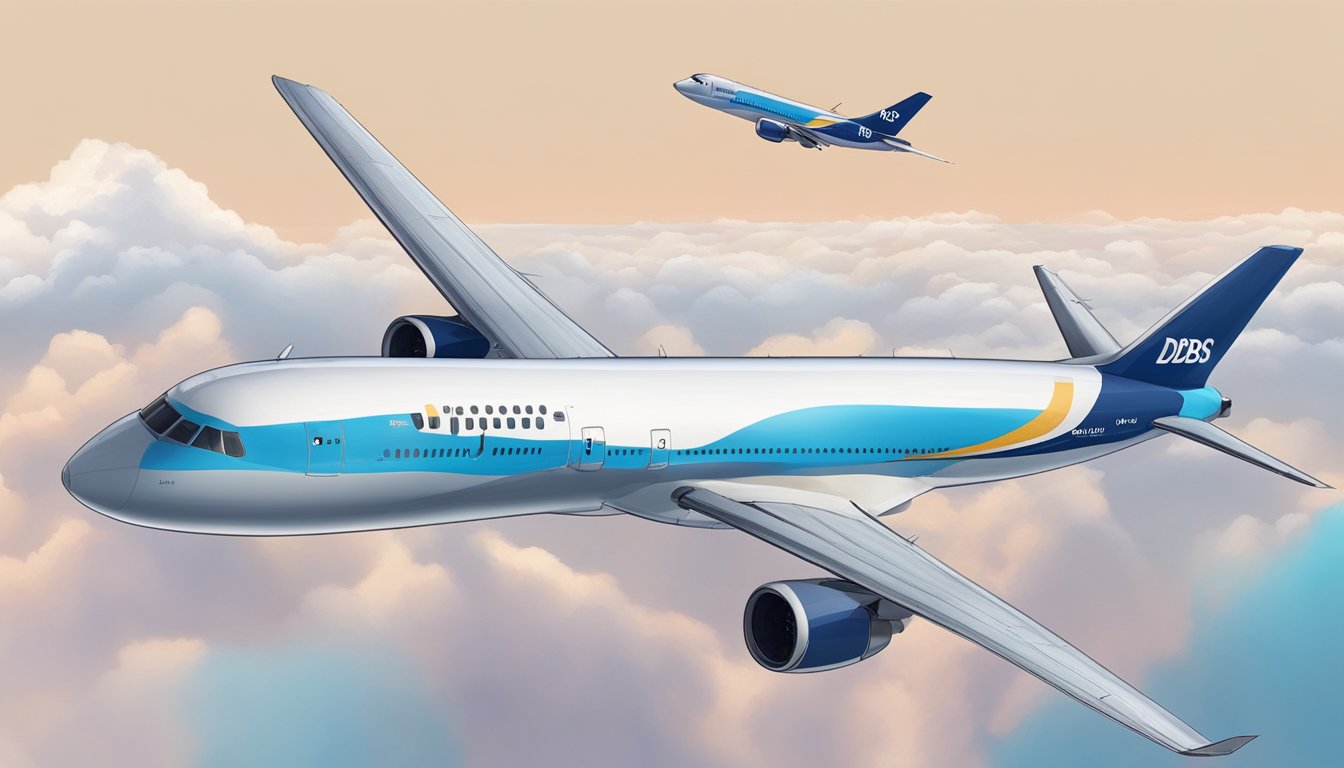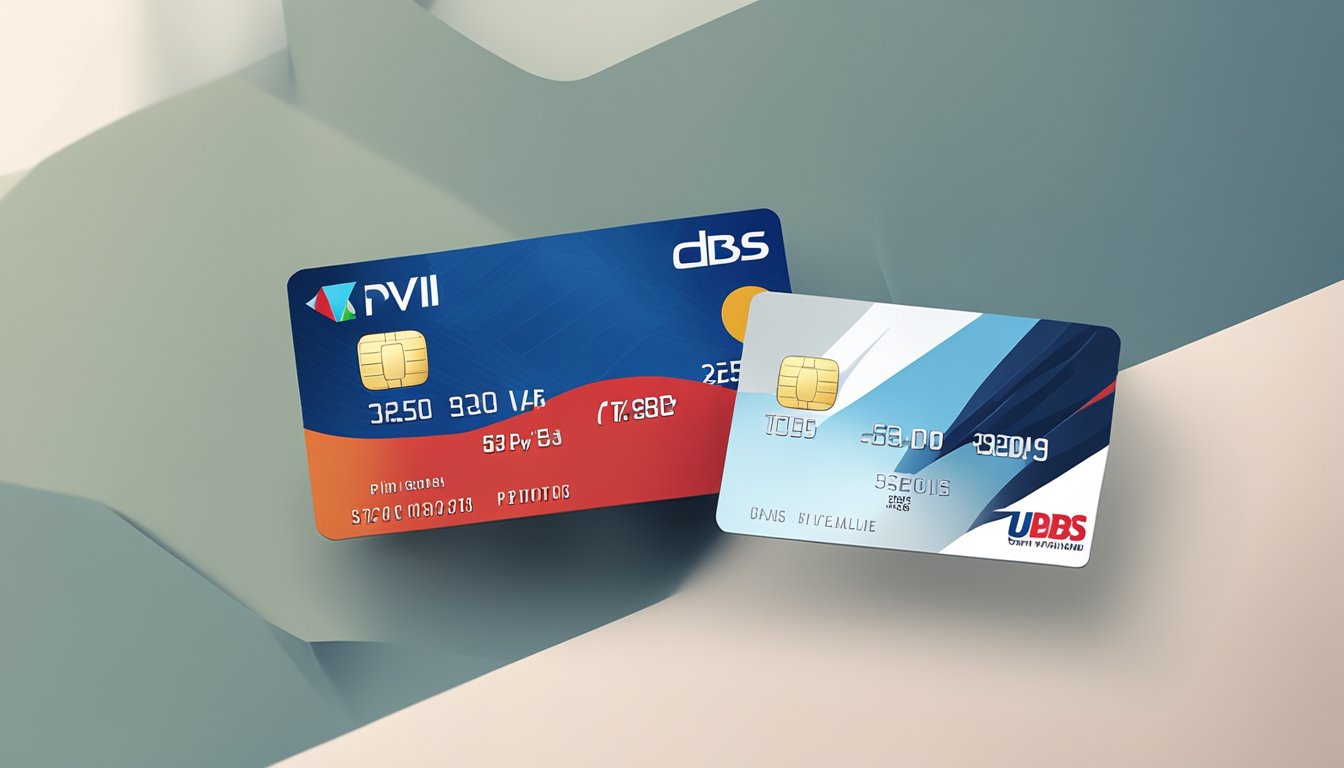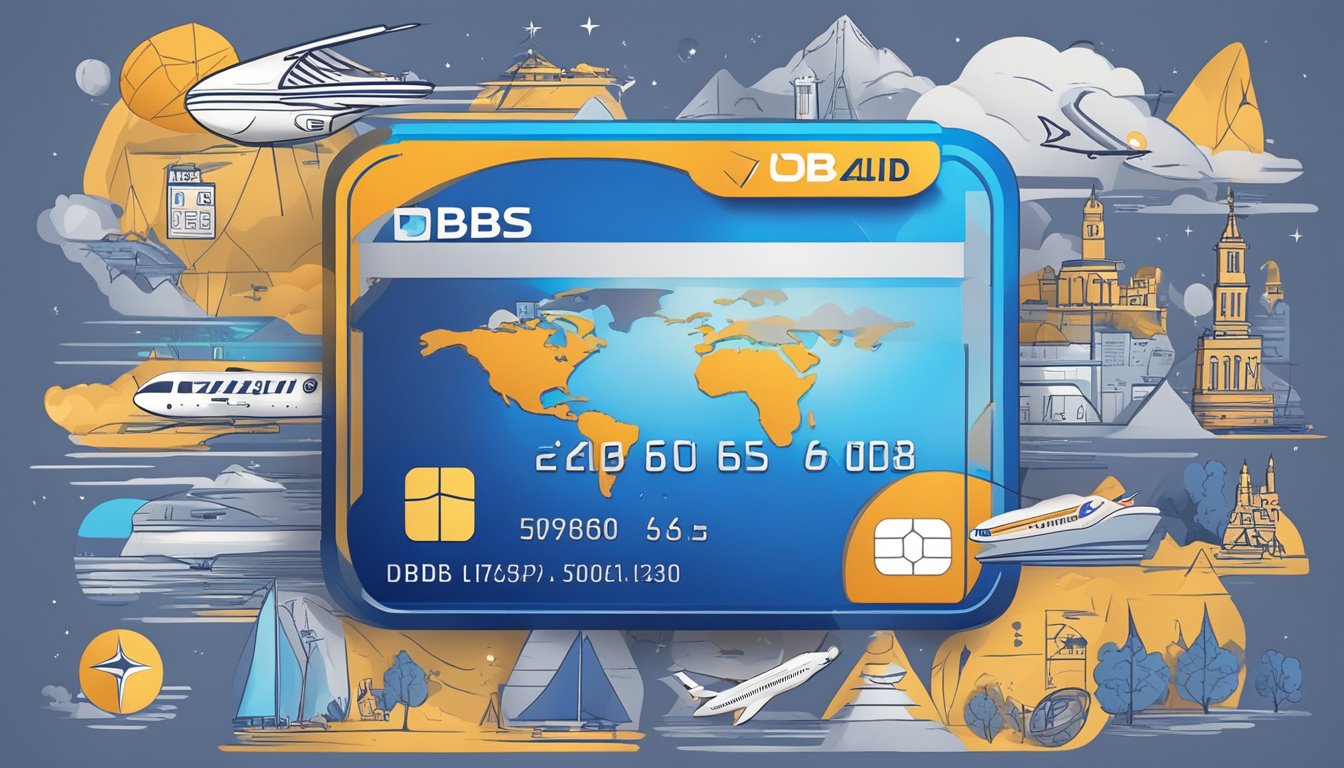Introduction

If you’re in the market for a new credit card that rewards you with air miles, you might be considering the DBS Altitude and UOB PRVI Miles cards. Both cards allow you to earn air miles on your spending, but which one is better for you? In this article, we’ll compare the two cards and help you decide which one is right for you.
Comparing DBS Altitude and UOB PRVI Miles Cards
The DBS Altitude and UOB PRVI Miles cards are two of the most popular air miles credit cards in Singapore. Both cards allow you to earn air miles on your spending, but they differ in terms of the earn rates, redemption options, and cardholder perks. The DBS Altitude card offers a higher earn rate on certain spending categories, while the UOB PRVI Miles card has a wider range of redemption options. When it comes to cardholder perks, the DBS Altitude card offers more luxurious benefits, such as lounge access and discounted limo transfers. The UOB PRVI Miles card, on the other hand, offers more practical benefits, such as travel insurance and discounts on hotel bookings.
Key Takeaways
- The DBS Altitude and UOB PRVI Miles cards are two popular air miles credit cards in Singapore.
- The DBS Altitude card offers a higher earn rate on certain spending categories, while the UOB PRVI Miles card has a wider range of redemption options.
- The DBS Altitude card offers more luxurious benefits, while the UOB PRVI Miles card offers more practical benefits.
Comparing DBS Altitude and UOB PRVI Miles Cards

If you’re in Singapore and looking for a credit card that helps you earn miles, the DBS Altitude and UOB PRVI Miles cards are two popular options to consider. Here’s a brief overview of the features and benefits of both cards.
Overview of DBS Altitude Card
The DBS Altitude Card is a Visa credit card that is designed for frequent travellers. It comes with a moderate annual fee and a minimum income requirement that is easy to meet. The card offers a decent earn rate of $1 = 1.2 miles for local spend and $1 = 2 miles for overseas spend.
One of the key features of the DBS Altitude Card is its welcome bonus. New cardholders can earn up to 10,000 bonus miles when they sign up and meet the spending requirement. The card also offers a bonus of 10,000 miles when you renew your card each year.
Features of UOB PRVI Miles Card
The UOB PRVI Miles Card is a Mastercard that offers high earn rates for miles. It has a higher annual fee compared to the DBS Altitude Card and a higher minimum income requirement. However, it also offers a higher earn rate of $1 = 1.4 miles for local spend and $1 = 2.4 miles for overseas spend.
One of the key features of the UOB PRVI Miles Card is its sign-up bonus. New cardholders can earn up to 10,000 bonus miles when they sign up and meet the spending requirement. The card also offers a bonus of 5,000 miles when you renew your card each year.
When comparing the two cards, it’s worth noting that the DBS Altitude Card is more affordable, but the UOB PRVI Miles Card offers higher earn rates. If you’re a frequent traveller, the UOB PRVI Miles Card could be a better option for you. However, if you’re looking for a more affordable card with a decent earn rate, the DBS Altitude Card is worth considering.
Overall, both the DBS Altitude and UOB PRVI Miles cards are great options for earning miles in Singapore. It’s worth comparing the features and benefits of both cards to decide which one is right for you.
Earning and Redeeming Miles

When it comes to earning and redeeming miles, both DBS Altitude and UOB PRVI Miles credit cards offer great benefits to their users. Here’s a breakdown of how you can maximise your rewards with each card.
Maximising Local Spend Rewards
For local spend, both cards offer similar earn rates. With DBS Altitude, you can earn 1.2 miles per $1 spent on local spend, while with UOB PRVI Miles, you can earn 1.4 miles per $1 spent on local spend. However, DBS Altitude offers a slightly higher earn rate of 3 miles per $1 spent on online flight and hotel bookings with Expedia, Agoda, and Kaligo.
Benefits of Overseas Expenditure
When it comes to overseas expenditure, UOB PRVI Miles takes the lead with an earn rate of 2.4 miles per $1 spent on foreign currency (FCY) spend. On the other hand, DBS Altitude offers 2 miles per $1 spent on FCY spend. However, DBS Altitude offers a higher earn rate of 3 miles per $1 spent on all overseas spend, including travel and hotels.
Leveraging Online Bookings
Both cards offer great benefits for online bookings. DBS Altitude offers a higher earn rate of 3 miles per $1 spent on online flight and hotel bookings with Expedia, Agoda, and Kaligo. UOB PRVI Miles, on the other hand, offers 6 miles per $1 spent on Singapore Airlines, SilkAir, and KrisShop purchases made online.
Overall, both DBS Altitude and UOB PRVI Miles credit cards offer great benefits for earning and redeeming miles. Depending on your spending habits, one card may be more suitable for you than the other. However, with either card, you can earn miles quickly and easily, and redeem them for flights, hotels, and more.
Cardholder Perks and Benefits

As a cardholder of either the DBS Altitude or the UOB PRVI Miles credit card, you will enjoy a range of perks and benefits that can make your travels and lifestyle more enjoyable. Here are some of the key benefits of each card:
Travel Perks and Lounge Access
If you are a frequent traveller, both the DBS Altitude and the UOB PRVI Miles cards offer you access to airport lounges around the world. With the DBS Altitude card, you get two complimentary visits per year to participating Priority Pass lounges, while the UOB PRVI Miles card gives you unlimited access to over 1,000 airport lounges worldwide through the Mastercard LoungeKey programme.
In addition to lounge access, both cards also offer travel insurance coverage to protect you against unexpected events such as flight delays or lost luggage. The DBS Altitude card offers up to $1 million in travel accident insurance, while the UOB PRVI Miles card offers up to $500,000 in travel accident insurance and up to $1,000 in travel inconvenience coverage.
Lifestyle Advantages
Beyond travel perks, both cards offer a range of lifestyle advantages that can enhance your everyday experiences. For example, the DBS Altitude card offers exclusive dining and hotel privileges, as well as discounts on limo transfers and green fees at participating golf courses. Meanwhile, the UOB PRVI Miles card offers discounts on Grab rides and access to a range of events and experiences through the Mastercard Priceless Cities programme.
Overall, both the DBS Altitude and the UOB PRVI Miles credit cards offer a range of benefits and perks that can make your travels and lifestyle more enjoyable. Depending on your specific needs and preferences, one card may be a better fit for you than the other. Be sure to compare the perks and benefits of each card carefully before making a decision.
Understanding Fees and Requirements

Annual Fee Insights
When it comes to the annual fee, both the DBS Altitude Visa and the UOB PRVI Miles credit cards have fees that are quite similar. The DBS Altitude Visa has an annual fee of S$192.6, which can be waived in the first year if you spend S$256.8. On the other hand, the UOB PRVI Miles credit card has an annual fee of S$259.2 for principal cardholders, with the first year waived.
It’s worth noting that the DBS Altitude Visa Card offers an additional 10,000 miles per year as a bonus, which can be used to offset the annual fee. This is only applicable if you do not qualify for the fee waiver based on your spending.
Income and Age Eligibility
Both the DBS Altitude Visa and the UOB PRVI Miles credit cards have similar income and age eligibility requirements. You need to be at least 21 years old to apply for either card, and the minimum annual income required is S$30,000.
It’s important to note that the DBS Altitude Visa Card has a higher minimum income requirement of S$80,000 for foreigners. Meanwhile, the UOB PRVI Miles credit card has a slightly lower minimum income requirement of S$24,000 for Singaporean citizens and permanent residents.
Card Fees
Apart from the annual fee, there are other fees that you need to consider when choosing between the DBS Altitude Visa and the UOB PRVI Miles credit cards. Both cards have a foreign transaction fee of 3.25%, which is quite standard for travel credit cards in Singapore.
It’s also worth noting that the DBS Altitude Visa Card has a higher cash advance fee of 6% compared to the UOB PRVI Miles credit card’s 5%. Additionally, both cards have a late payment fee of S$100.
Overall, both the DBS Altitude Visa and the UOB PRVI Miles credit cards have similar fees and requirements. It’s important to choose the card that best fits your needs and spending habits.
Frequently Asked Questions

What splendid benefits can one expect from the DBS Altitude Card?
The DBS Altitude Card offers a host of benefits for frequent travellers. You earn air miles at a standard rate of $1 = 1.2 miles (local) and $1 = 2 miles (overseas), plus $1 = 3 miles (or more) on online flight and hotel bookings. Additionally, you can enjoy complimentary travel insurance coverage of up to $1 million when you charge your travel expenses to your DBS Altitude Card.
How do the DBS Altitude Card promotions enhance your travel experience?
The DBS Altitude Card promotions offer exclusive deals and discounts on travel-related expenses such as flights, hotels, and car rentals. You can also earn bonus miles when you sign up for the card or spend a certain amount within a promotional period. These promotions can help you save money and maximise your mileage earnings.
Could you explain the process of converting DBS points to miles?
To convert your DBS points to miles, simply log in to your DBS account and navigate to the rewards redemption page. From there, select the option to convert your points to miles and enter the desired amount. The conversion rate is 1 DBS point to 2 miles, and you can convert in increments of 5,000 points.
What are the latest terms and conditions that apply to the DBS Altitude Card?
The latest terms and conditions for the DBS Altitude Card can be found on the DBS website. Some key points to note include the annual fee of $192.60, which is waived for the first year, and the minimum income requirement of $30,000 per annum. Other terms and conditions may apply, so be sure to read the fine print carefully before applying for the card.
How does the UOB PRVI Miles card stack up against the DBS Altitude in terms of miles earned per dollar?
The UOB PRVI Miles card and the DBS Altitude Card offer similar rewards rates, with the UOB card offering 1.4 miles per dollar spent locally and 2.4 miles per dollar spent overseas. However, the UOB card has a higher annual fee of $256.80, which is not waived for the first year. Additionally, the UOB card may have more restrictive terms and conditions, so be sure to compare the two cards carefully before making a decision.
Which credit card should a frequent traveller choose to maximise their mileage earnings?
Both the DBS Altitude Card and the UOB PRVI Miles card offer competitive rewards rates and travel-related benefits. Ultimately, the best card for you will depend on your individual spending habits and travel preferences. Consider factors such as annual fees, minimum income requirements, and redemption options when comparing the two cards.




